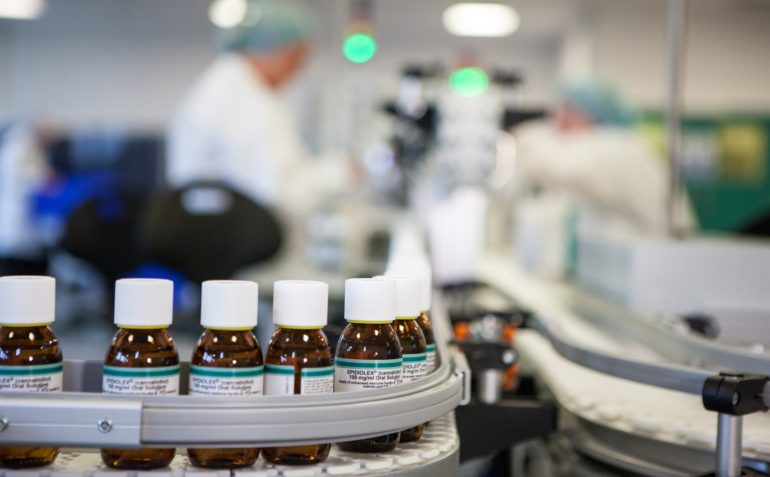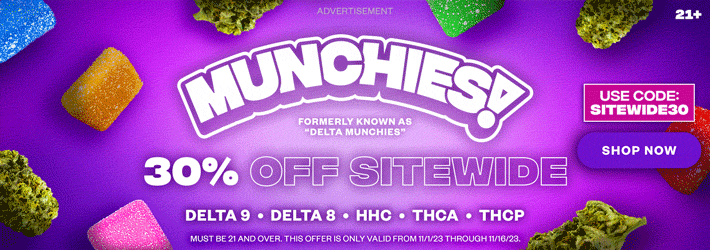In the past few years, CBD has been in the news a lot. It’s a cannabinoid that everybody is getting excited about, yet so few people actually know anything scientific about it. Even the FDA has kept CBD in a gray area up until recently, though it still continues to create confusion and debate within their guidelines.
With this, keeping up with the FDA’s stance on CBD can be frustrating. To make it easy, we’ve discussed where the FDA stood in terms of CBD in history, where they’re at today, and what this means for the future of the cannabinoid and legality.
Everything you need to know:
- The relationship between CBD and the FDA has been rocky and confusing. We’re here to break it down for you.
- In the past, the FDA has not recognized CBD as being different than cannabis nor recognized for its medicinal properties.
- Over time, stances have changed and the US passed the 2018 Farm Bill that legalized the cultivation of hemp. With this, hemp-derived CBD became federally legal.
- As of 2020, the FDA only has one approved drug that contains CBD, and it is still illegal for CBD products to be labeled as dietary supplements.
- Tests are being conducted and studies are being looked at, but progress with CBD and the FDA will continue to take time.
The FDA and CBD’s Rocky History
Prior to some changes made by a transformative bill in 2018, the FDA had previously demonized cannabis and all of its constituents.
In general, the idea that one of cannabis’ cannabinoids is non-psychoactive and beneficial just simply wasn’t as accepted even a decade ago as it is today.
With that, organizations like the FDA did not recognize CBD or its plant derivatives as potentially helpful for years.
Eventually, with the help of more studies and stories like Charlotte Figi’s (which led to the launch of Charlotte’s Web CBD), the FDA started recognizing CBD as something different than cannabis as a whole. Especially in regards to medical conditions like epilepsy, the Food and Drug Administration showed leniency and acceptance the country hadn’t seen before in terms of cannabis.
In 2018, hemp cultivation was legalized
In 2018, congress passed a bill that legalized the cultivation of the hemp plant. With this also came the legalization of hemp-derived CBD products, such as long as they don’t contain more than 0.3% THC. If they contain less than that amount, the products are deemed safe for sale and consumption.
This bill truly helped the country see the potential of CBD. Before this, getting your hands on CBD products was tough, and you couldn’t always rely on what you were purchasing.
While laws are still a bit muddied and not as clear as they should be, overall, this change was integral for the world of CBD and the FDA.
The FDA and CBD in 2020
It has now been two years since the passing of the 2018 Farm Bill and the FDA finally beginning to recognize CBD’s beneficial characteristics within medications, food, and drink. Unfortunately, not much as changed since then.
FDA approved the first marijuana-derived drug
After Charlotte Figi’s story went viral, the FDA did approve of the first drug that was comprised of active CBD.
The drug, Epidiolex, was crafted to treat rare, severe forms of epilepsy and contained medicinal ingredients alongside cannabidiol. This was historic for the FDA and it gave many a lot of hope into the future of medicinal CBD. However, we haven’t progressed since.
Though the FDA is working closely every day with scientific studies to help continue to understand the substance, Epidiolex continues to be the only drug in the industry to embrace CBD.
Any other CBD-infused substance, food, drink, or otherwise, is still not FDA-approved, then.
While CBD is technically federally legal, most of it is still unsupported by the FDA today. This means that is currently illegal to market CBD as a dietary supplement or anything of the like.
Final Thoughts: What the Future Holds
Right now, the future of CBD is still quite up in the air. CBD seems to live in purgatory, with everybody having their own differing opinions that keep it from progressing the way that most need it to.
In general, the FDA has stated that they simply need time. To make concrete conclusions requires long-term studies–an abundance of them, too. Conducting long-term, large case studies surrounding CBD isn’t always feasible, so making progress may not be as effortless as we’d like to think.
Over time, CBD will continue to be debated and, hopefully, its status within the FDA will finally become established with more evidence and more certainty. For now, it is crucial to stick with CBD products like CBD tinctures and topicals that we know are safe and accepted legally.
For now, you can continue to rely on your favorite CBD oil for relief, but, maybe in the future, you’ll get to turn to a CBD-infused edible straight from the grocery store. Who knows!

